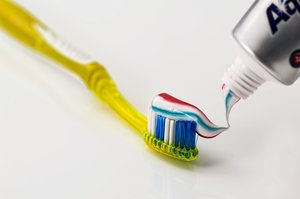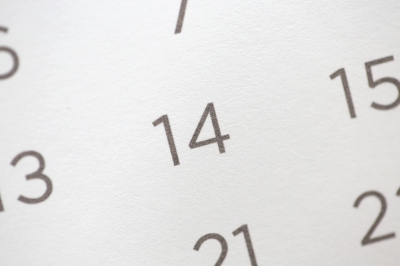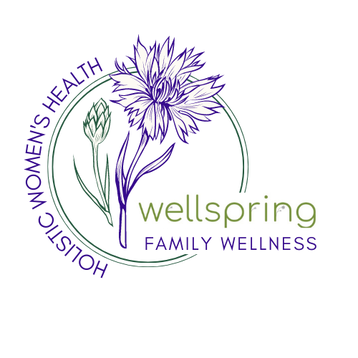|
The practice of natural family planning (NFP) has numerous benefits. It’s effective, safe, free of side effects, can be used to avoid or achieve pregnancy, works with irregular (or non-existent) cycles, and helps women to manage their own healthcare. When presented with the many reasons to use NFP, many wary women and couples have asked the question, “But is it hard?” There isn’t a quick answer to this question. It really depends on how you look at it. For example: what if I gave you a task that needed to be done every morning, every evening, and even after some meals, every day, for the rest of your life? What if this task required special tools and supplies that needed to be regularly replenished? Would this seem hard? Perhaps, but most of us do this cheerfully without a second thought. I’m talking about brushing your teeth!  When it’s important enough, and the benefits are so clear (as in the case of oral hygiene), adding something extra to your routine doesn’t seem like a big deal. Many people feel the same way about NFP. And surprisingly, once learned, NFP actually requires less time and effort than your average brushing and flossing routine. Practicing the SymptoPro method of NFP takes a typical women just minutes a day, and she can use the information gained in those brief minutes to accomplish so much! If learning how to observe, identify and chart your fertility signs and applying the guidelines seems daunting, I highly recommend finding a certified instructor to train you. Working with a professional will give you piece of mind and eliminate a lot of the guesswork, and soon enough you'll feel like a pro yourself! So the actual charting clearly isn’t so bad. But what about the abstinence? Yes, practicing natural family planning to avoid pregnancy effectively does require a couple to abstain from intercourse during the fertile window of a woman’s cycle. Depending on her experience and her individual cycles, this usually means about 8-12 days per cycle. Certainly, abstinence can be tricky, but when approached with the right mindset, it can actually serve to strengthen a couple's relationship (and even spice things up in the bedroom!) So in my mind, weighing the pros and cons, NFP isn’t hard at all. At some times it requires sacrifice in the form of delayed gratification, but it is more than worth it. NFP provides freedom, peace of mind, increased intimacy, matchless self-knowledge, and so much more. And it's a skill that actually becomes easier, and more enjoyable, with time and practice. So what do you think are the hardest parts of natural family planning? What are some of the benefits?
0 Comments
 As a fertility educator and SymptoPro instructor, I'm passionate about helping couples to manage their reproductive health in a safe, effective, and empowering way. But what does that mean, exactly? What role does a fertility educator play in a woman's journey of using natural family planning (NFP)? The first thing a fertility educator can do is to teach you the guidelines of natural family planning. During the main instructional period, you will learn about the function of various hormones, the phases of the menstrual cycle, the signs of fertility, how to observe and chart the signs, and how to apply the guidelines for avoiding (or achieving) pregnancy. Your instructor will work with you closely to make sure you feel confident in the method and can apply the rules correctly. Your NFP instructor will also review your charts. Besides simply learning the guidelines of NFP, you will also be getting to know the unique rhythms of your own cycles. Your instructor will be available long after your initial class series has ended, to answer any questions you may have about observational techniques, your charts, your fertile window, and more. You'll probably have several in person follow up meetings, as well as continuous phone/email support. A fertility educator is also trained to guide you through various reproductive circumstances. Whether you have long, short, or irregular cycles, are premenopausal, coming off of hormonal birth control, breastfeeding, or suffering from gynecological problems, your instructor can teach you to interpret and navigate charts that may look different than what you saw in class. This also means that an instructor can help you throughout your reproductive life, as your circumstances and body changes and matures. She can help you make the switch from trying to conceive, to trying to avoid pregnancy, and back again. Your NFP instructor is someone you can ask anything without fear of embarrassment or funny looks. She is a coach, cheerleader, and a teacher with a wealth of experience. Interesting in learning more about how a fertility educator can help you? Leave a comment below or contact me here!  One claim I often come across in the fertility charting world is that "natural family planning benefits marriages". But if you know anything about natural family planning (NFP), you know that it involves *gasp* abstinence. How on earth can a practice that prescribes periodically staying away from each other possibly help your relationship? I'm glad you asked. In my time training, teaching, and networking with other NFP users and professionals, I've come across many examples of how NFP can benefit relationships. Here are just a few: 1. Increases communication In order for NFP to be effective (whether you are preventing or achieving pregnancy), it's essential for the couple communicate well about a number of intimate issues. Not only will they be discussing a woman's fertility observations (i.e., mucus!), but it's important for them to be able to talk about their desires, frustrations, shared goals, concerns, and dreams. Whether you are pros at communication, or need to improve in that area, practicing NFP is a great way to get in the habit of discussing important, intimate issues on a consistent basis. 2. Promotes understanding Women are cyclical creatures, meaning our hormones rise and fall according to a unique monthly pattern. Unfortunately, society has done its best to shroud the female cycle in mystery, which is bad news for husbands everywhere. When a couple tracks a woman's cycle, they can better understand the woman's changing moods, energy levels and desires, making it a lot easier to get along. You may actually find you appreciate the cycle! 3. Supports emotional health Women have long known that hormonal birth control messes with our moods and lowers libido. Now, a recent study shows that contraceptives are linked to depression. Thankfully, a couple wishing to avoid pregnancy can avoid the Pill and use NFP instead. 4. Encourages courtship When a couple is avoiding pregnancy, natural family planning requires abstinence during a woman's brief fertile window every month. For a couple used to unlimited sex this might take some adjustment - however, many couples find that periodic abstinence builds a 'courtship and honeymoon' aspect into each cycle. After a week or so without sex, the end of the fertile window is often a time of renewed excitement and romance. 5. Builds intimacy In addition to the creating an atmosphere of courtship in a relationship, using NFP means that a couple never has to use condoms or any other barrier methods. In addition, there is a special closeness that comes from the teamwork and cooperation that NFP relies on, which brings us to the next point. 6. Shared responsibility NFP is unique as a form of pregnancy prevention because it requires both the man and the woman to assume responsibility. In order for NFP to be effective, both people have to understand the meaning of the woman's fertility chart and agree to follow the guidelines. It's a method of cooperation in every aspect: if the couple decided to have sex on a 'risky' day (still in the woman's fertile window), it's a mutual decision with both parties accepting the possibility of pregnancy. While periodic abstinence can have it's own frustrations, natural family planning has the potential to be a wonderful, relationship building practice. Find out how to learn to chart your own cycle today!  Notice I didn't say 'everyone'. There will always be someone who plain just doesn't like natural family planning, for whatever reason. Maybe they can't get their spouse on board. Maybe they dislike paying attention to their body. Maybe they simply aren't interested, and that's okay. However, NFP can be for anyone. The ability to plan your family by charting your cycle and modifying behavior is not limited to a select few. I hear people say they don't think they can use NFP because: They aren't Catholic. They aren't 'crunchy'. They are too lazy. They are too busy. They have irregular cycles (or no cycles!) They are breastfeeding. They really really don't want to get pregnant. If any of this sounds familiar, you might be interested to know that natural family planning can absolutely work for you, and you may even surprised at how well it fits into your lifestyle. Let me address some of these right off the bat.  What comes to your mind when you hear the words natural family planning? If you've never heard the phrase before, perhaps you picture condoms, or strange herbal concoctions brewed over some ancient wise woman's hearth. That's more natural than hormonal contraception, right? Or if you have heard of natural family planning (NFP), maybe the Rhythm Method comes to mind. But believe it or not, the Rhythm method of family planning has very little to do with modern, fertility awareness based methods of avoiding or achieving pregnancy. Curious yet? I think it's time to set the record straight. The Rhythm Method To start with, what is the Rhythm Method? For centuries, people have made observations about the fertility of women and speculated as to when they seem to be most likely to conceive. But until the 20th century, there was little if any formal research done into the matter. In the 1920's, two different doctors (Hermann Knaus of Austria and Kyusaku Ogino of Japan) independently discovered that a woman ovulates (releases an egg from her ovaries) about two weeks before her next period begins. This soon lead to the development of the Rhythm or Calendar Rhythm Method, which incorporated several important facts: A woman only ovulates once per cycle, and once she does, her period shows up in about two weeks like clockwork. Doctors also knew that a viable egg, only present around the time of ovulation, is vital to conception. If no egg is present, no pregnancy can occur, even if a woman has unprotected intercourse. The Rhythm Method assumes that women ovulate on day 14 of their cycle, two weeks before their periods. Therefore to avoid pregnancy, a couple would avoid having intercourse for a number of days around day 14. This is a calendar based approach to family planning, relying on counting days of a woman's cycle. Sounds pretty simple, right? The problem is, not all women have 28 day cycles, and they don't necessarily always ovulate on day 14. Not only can cycles vary greatly from woman to woman, but each particular woman can have great variety in the length of her cycles and the timing of ovulation. This would seem to make the Rhythm Method largely useless - if a woman was abstaining from intercourse on days 10-16 with the purpose of avoiding pregnancy, she'd be in for a surprise if one month she actually ovulated on day 17, thus allowing for the possibility of pregnancy.  If you are sexually active and wish to avoid pregnancy, you will need to practice some form of family planning. In today’s modern society there is an enormous variety of options available; there’s hormonal birth control, non-hormonal barriers and devices, sterilization, natural methods, and many options within each of those categories. It can be overwhelming to know how to choose! Here are four questions that are useful for couples and women to consider while making their decision. 1. Is it safe? This is obviously a very important consideration when selecting a form of birth control. Any prescription medication is going to have certain risks and side effects, some more than others. Non-hormonal devices such as copper IUDs can have various effects on the body. And some women are also more at risk for certain complications from hormonal birth control than others (such as those who smoke or who have a history of breast cancer). Whatever form of contraception you are considering, make sure to carefully read all package inserts from the pharmaceutical company, relevant studies, and current research so you fully understand all risks and the possible short term and long term side effects of use. (This post may contain affiliate links)  One of the most common reasons I hear women give for taking birth control pills is to 'regulate their periods' or 'balance their hormones'. Anyone who wishes for a more convenient period experience can take this magic pill. If you are someone who has struggled with irregular cycles, painful periods, or heavy bleeding, chances are your doctor has suggested that you try oral contraceptives. But does the Pill actually 'cure' these conditions? What's so special about a period, anyway? Fake Periods
Believe it or not, that regular monthly bleeding that occurs when someone is taking the Pill is not actually a period. I know that sounds strange, but listen: true menstruation is the shedding of the uterine lining (the endometrium) that occurs after the final, progesterone-influenced phase of a woman's cycle that follows ovulation. If conception does not occur, the endometrium is not needed to nourish a new life and so it is shed, beginning the next cycle. The 'period' associated with taking the Pill is not actually menstruation, but rather withdrawal bleeding, caused when the artificial hormones are suddenly taken away during the sugar pill or off week of your pill-taking.  According to the Guttmacher Institute, 99% of sexually active, American women of reproductive age have used some kind of artificial contraception in their lifetime. This could mean various hormonal contraceptive or barrier methods. That's a pretty staggering statistic! It would seem that contraception is a nearly universal experience for the American woman. But should it be? I personally believe that most contraception is overkill for pregnancy prevention. That may seem like a strange thing to say, given that contraception by definition is intended to prevent pregnancy! Human Fertility and Birth Control To explain what I mean, I'll have to tell you a little bit about how female fertility works. .....“[The doctor] started to tell me, you have multiple pulmonary embolisms in both lungs,” said Megan Henry. “They’re sending an ambulance, they’re going to come and they’re going to rush you to the emergency room … it just really took me by surprise and you know I knew it was something bad but I never imagined it would be something like that.”
According to her hospital discharge papers, the NuvaRing Henry was using “was probably the risk factor” for her pulmonary embolisms. Henry went from peak physical condition to using a breathing machine. She was put on blood thinners, too. Her doctors told her it’s too risky to use hormonal birth control again. (Read the entire article here) |
For updates, new articles, upcoming events, and information about fertility, healthy relationships, and natural family planning, sign up for the newsletter below:
Categories
All
|
Wellspring Family Wellness
[email protected]
2024
This site and associated social media may contain affiliate links from which I earn a small commission
[email protected]
2024
This site and associated social media may contain affiliate links from which I earn a small commission

